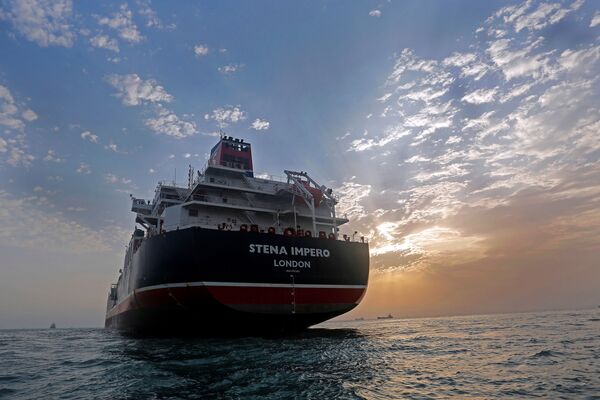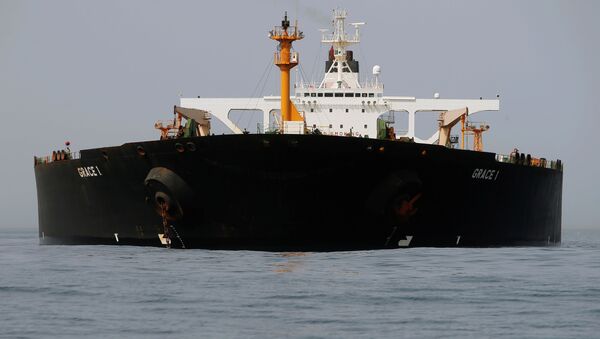Iran's President Hassan Rouhani condemned the seizure of the Iranian oil tanker, saying on Sunday, 28 July, that the seizure was illegal and would be detrimental for the United Kingdom.
Earlier this day, Iran's Foreign Ministry spokesperson and senior nuclear negotiator Abbas Araqchi said as quoted by the ISNA news agency that the UK seizure of an Iranian oil tanker off Gibraltar constituted a violation of the Joint Comprehensive Plan of Action.
"We witnessed the seizure of an oil tanker carrying Iranian oil in the Strait of Gibraltar which in our view is a violation of (the nuclear deal)", Araqchi said. "And the countries who are part of (the nuclear deal) shouldn't create obstacles for the export of Iranian oil."
Araqchi added that the nuclear deal signatories continued to work on practical steps to circumvent US sanctions on Iran.
"We will organise several expert meetings to find practical solutions so that Iran can get its benefits from the sanctions that were removed earlier. One of such solutions is INSTEX. It is not working yet, but it is already at the final launch stage," Araqchi said. "We decided to take other practical steps in other areas, including in the energy and trade sectors," he added.
The senior nuclear negotiator also praised an emergency meeting with the parties to the 2015 Iran nuclear deal, describing the gathering as "constructive."
The official added that Tehran will continue to reduce its commitments under the JCPOA until Iranian interests are protected.
Seizure of Iranian Oil Tanker Off Gibraltar
Already tense relations between Iran, the United Kingdom and the United States have fallen to their lowest point in recent years amid a series of oil tanker seizures.
A Syria-bound Iranian supertanker Grace 1 carrying oil was detained off Gibraltar on 4 July by the territory's law enforcement, supported by UK marines. The authorities cited a breach of EU sanctions against Damascus as the reason for the seizure. Tehran denied the claims and stressed that Britain has endangered maritime safety by its actions in Gibraltar.
Last week, a court in Gibraltar extended the detention of the Iranian oil tanker by 30 days. The tanker's four crew members were freed on bail earlier this month after being questioned.
Tensions Continue to Grow
The situation was exacerbated after a British tanker was detained by the Islamic Revolutionary Guards on 19 July. Tehran said that the vessel had violated maritime laws, ignored warnings from the military, switched off its positioning device and collided with an Iranian fishing boat.

The Islamic Republic stressed, however, that the Stena Impero's seizure was not a "retaliation" for the detention of the Grace 1 in Gibraltar.
Iranian Nuclear Deal
The seizure of the tankers comes amid greater tensions between Tehran and the West.
In May, on the one year anniversary of the US exit from the JCPOA, Iran said that it would give the deal's other signatories, France, the UK, Germany, Russia, China and the European Union, sixty days to work to save the accord by facilitating oil exports and trade with Iran. On July 7, the deadline expired, and Tehran announced that it would start enriching its uranium stocks beyond the 3.67 percent level outlined in the JCPOA, and continue to gradually reduce its commitments under the treaty every 60 days unless the other signatories met their commitments.
The other signatories of the JCPOA have expressed concerns over Iran's heightened enrichment activities, even as Iran has continued to insist that it has no intention of pursuing a nuclear weapon.


